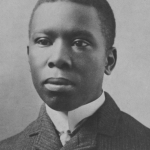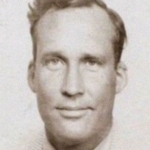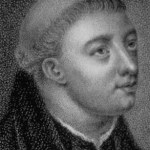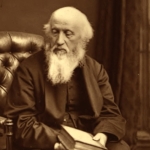The stars are hiding now,
And frowning on the world, love,
Night bares her sable brow.
The snow is on the ground, love,
And cold and keen the air is.
I’m singing here to you, love;
You’re dreaming there in paris.
But this is Nature’s law, love,
Though just it may not seem,
That men should wake to sing, love;
Them care may not molest, love,
Nor stir them from their slumbers,
Though midnight find the swain, love.
Still halting o’er his numbers.
I watch the rosy dawn, love,
Come stealing up the east,
While all things round rejoice, love,
That night her reign has ceased.
The lark will soon be heard, love,
And on his way be winging;
When Nature’s poets, wake, love,
Why should a man be singing?



















Comment form: